Coronavirus: US Congress abandons return to Washington
- Published
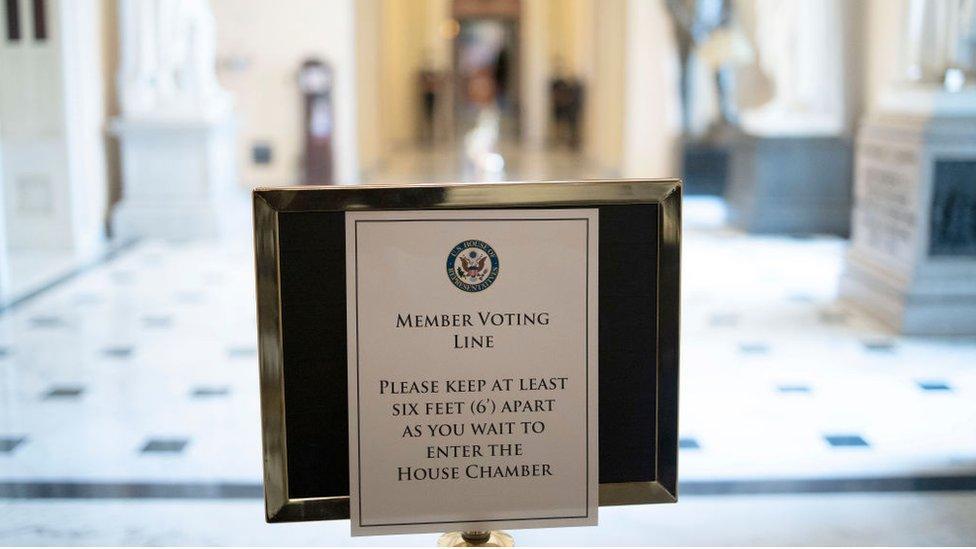
A sign in Congress mandates social distancing for lawmakers
The US House of Representatives will not reconvene next week following a revolt from lawmakers who complained that it was too soon to return.
On Monday, members were told to return to the Democratic-controlled chamber.
However, House Majority Leader Steny Hoyer said on Tuesday the plan was scrapped after consulting the House doctor.
The volte-face came as the confirmed number of US Covid-19 cases passed 1m.
The Republican-controlled Senate still plans to return on 4 May.
WATCH: 'They risk their lives just to cut my hair'
"We made a judgement that we will not come back next week but that we hope to come back very soon," Mr Hoyer said, adding that the bipartisan group studying remote work options for Congress would meet on Tuesday.
"My objective would be that we agree upon a process so that committees can do all the work they would do if they were sitting in the same room," he said.
Washington DC remains under a stay-at-home order until 15 May. Officials say the infection rate is still climbing.
The Washington DC area, which includes suburbs in Maryland and Virginia, has recorded over 38,000 cases and more than 1,600 people have died.
One thing that makes job loss in US so painful
The number of Americans who have tested positive for the virus stood at 1,011,600 on Tuesday afternoon, according to Johns Hopkins University, and over 58,300 people in the US have died.
Democratic leaders faced a backlash from members of their own party over the plans to return next week.
On a private call with House members, Debbie Wasserman Schultz, a congresswoman from Florida, told party leaders the plan was "dangerous" and several complained that they had no way of managing childcare, according to Politico, a US media outlet.
On Tuesday, Mr Hoyer announced that the return to Washington would be postponed. "The House physician's view was that there was a risk to members that was one he would not recommend taking," he said.
"We had no choice," said Speaker of the House Nancy Pelosi, defending the change in course. "If the Capitol physician recommends that we not come back, then we have to take that guidance in the interest of the safety of the people who work here."
However, there is pressure to reconvene the chamber in order to pass key legislation amid the coronavirus pandemic.
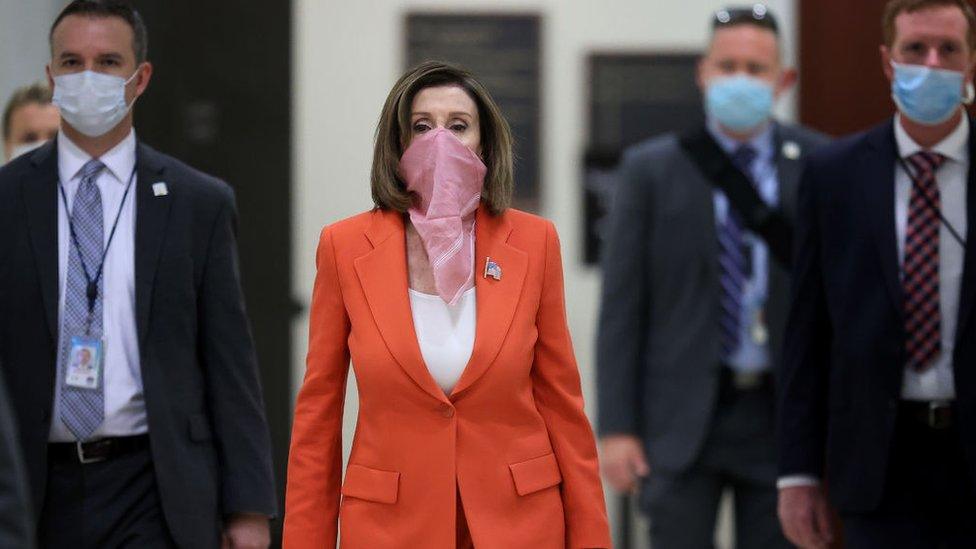
Speaker of the House, Nancy Pelosi, said the House had "no choice" but to delay its return
President Donald Trump, a Republican, who called for Congress to return, poured scorn on the decision.
"Democrats are enjoying their vacation," he said.
Questions over how to reopen Congress for business are likely to renew calls for proxy sessions and remote voting, said BBC North America correspondent Anthony Zurcher. Currently, rules prevent members of Congress from voting remotely, though there are efforts to change.
On Tuesday, the House and Senate Sergeants at Arms extended the ban on visitors to the capitol until 16 May.
Only lawmakers and their staff, as well as credentialed journalists and visitors on official business, will be allowed to enter.
The decision was made "out of concern for the health and safety of congressional employees as well as the public", they said in a joint statement.
Some key questions remain about how lawmakers can conduct routine business on Capitol Hill.
Most congressional cafeterias are buffet-based and some lawmakers sleep in their office and rely on the gym to be open for showering.
If unable to sleep at work, lawmakers may be forced into Washington DC hotels, which are costly and could quickly become overcrowded.
It also remained unclear whether lawmakers will have their temperatures taken at the door, how they will practise social distancing in the chamber and whether any lawmakers will be permitted to vote in absentia.



A SIMPLE GUIDE: What are the symptoms?
LIKE 9/11 EACH DAY: A New York paramedic's diary
FACTORY HOTSPOT: The untold story behind America's biggest outbreak
GUNS & CHEESE: The unexpected items deemed 'essential'
REASON TO HOPE: The good that may come out of this crisis

- Published27 April 2020
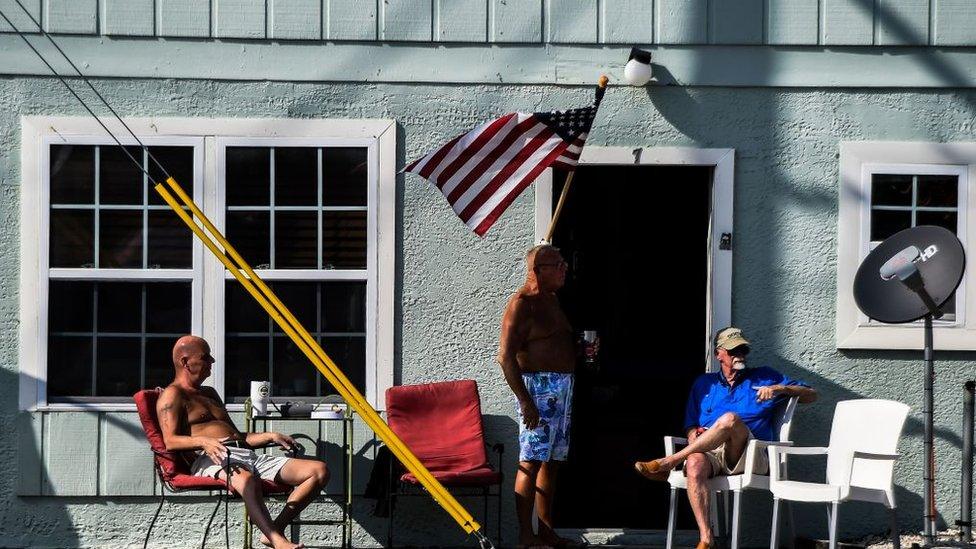
- Published26 April 2020
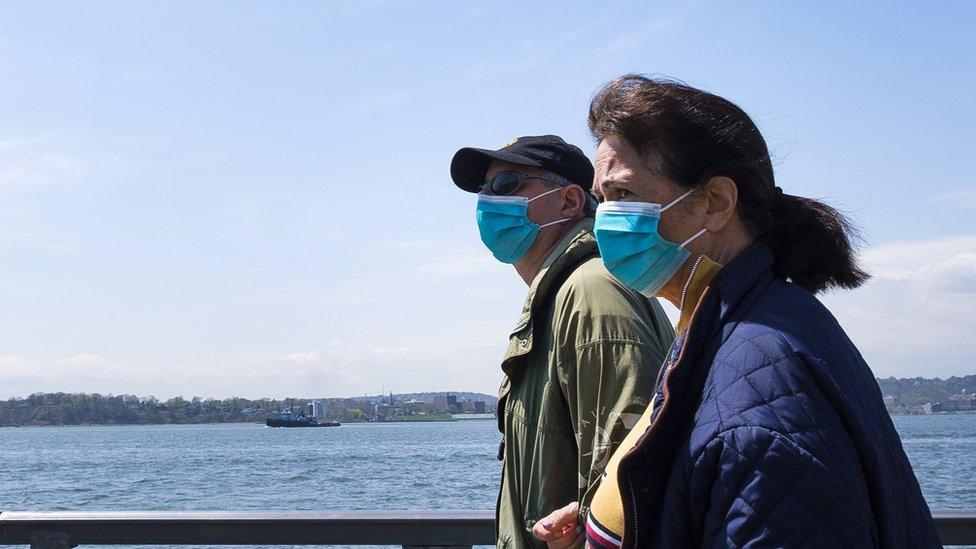
- Published25 April 2020

- Published17 June 2020
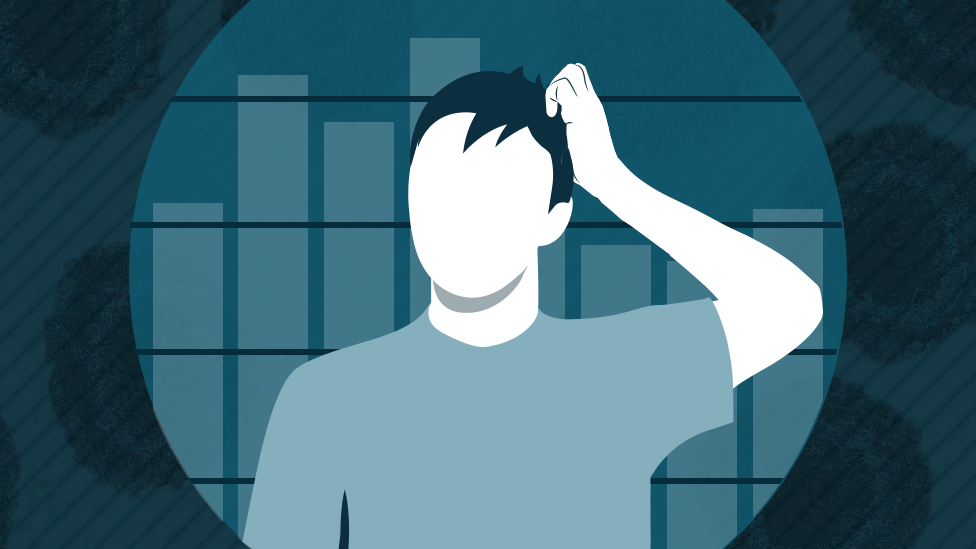
- Published24 April 2020
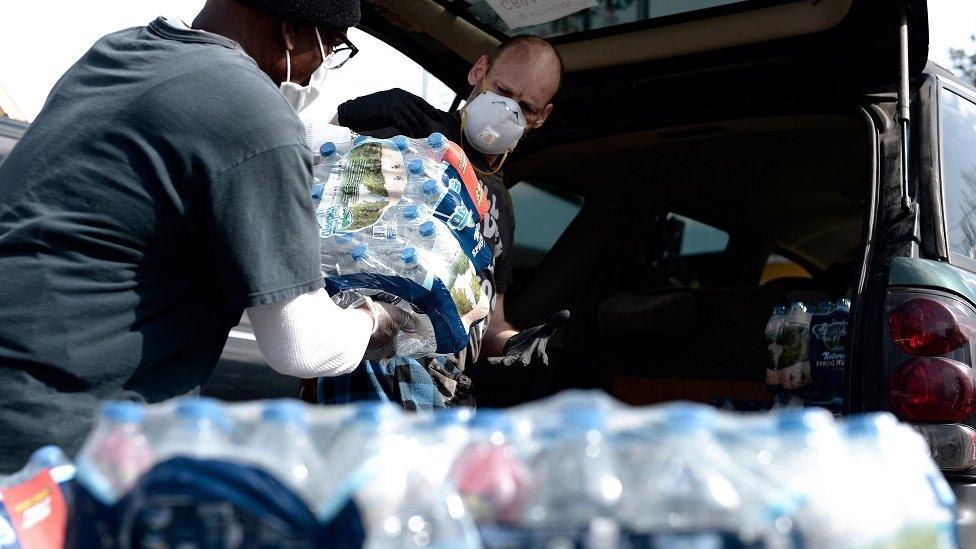
- Published8 March 2020
